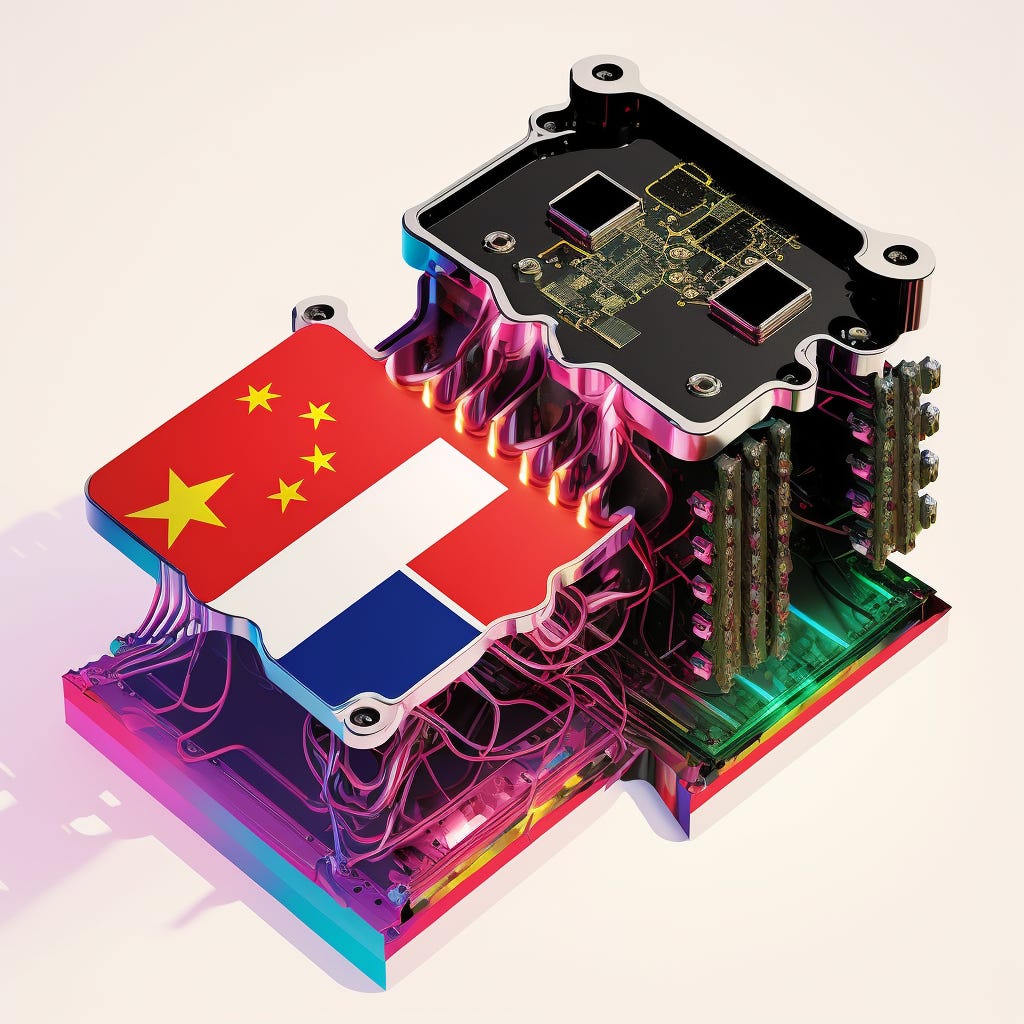Nicholas Welch
Media reports from late January indicated that Japan and the Netherlands were prepared to follow the US in applying semiconductor export controls on China — and last week the government of the Netherlands made the first concrete move by announcing export restrictions on advanced immersion DUV systems to China. On February 15, China’s primary trade association for semiconductor firms, the China Semiconductor Industry Association (CSIA), released an official statement condemning the measures. The statement protested the trilateral export controls, warning that such measures would gravely damage the Chinese semiconductor industry and bring harm to the global semiconductor ecosystem. The Chinese statement was then followed by a “suggested translation” (参考译文).
Helpful, right?
In reality, the English translation did a poor job of conveying the full extent of the trade association’s dismay. A closer reading revealed two important omissions and one mistranslation, together making a strong case that the suggested English translation was intended to appear more calm and tempered in front of an international audience. In fact, the original Chinese statement takes a much more indignant tone, reading more like an impassioned call to action to the Chinese domestic semiconductor industry to get its act together.
Let’s examine the two omitted sentences.
Midjourney: “conceptual representation of semiconductor policy rendered as a two-level game between CCP translators and export masterminds”
First, in a section contextualizing the significance of semiconductors as the core of global digital infrastructure, the CSIA’s English translation omitted the fragment: semiconductors “are the precondition for mankind to close the digital divide” (是全人类消除数字鸿沟的前提).
This line is curious. It’s unclear why CSIA decided not to convey to its international audience that semiconductors are vital to bridging the global digital divide. It is possible the trade association wished to appear unflappable.
Second, before CSIA implored the global semiconductor industry and academic community to promote collaborative innovation with Chinese actors, this sentence was struck from the organization’s English translation: “China’s semiconductor market has always maintained open cooperation” (中国半导体市场始终坚持开放合作).
The reason behind this omission may be that China in practice does not actually see itself maintaining open cooperation, or would rather agree to open cooperation on its own terms. Trade and investment barriers such as forced joint-venture arrangements and practices such as pressuring foreign firms to localize production do not exactly champion open cooperation.
There was also one egregious mistranslation.
The CSIA translation stated that “inappropriate intervention by government and authorities can cause disruption to our industry.” This line sounds like a fairly even-toned statement from the Chinese perspective — except that the original wording of the sentence sounded a bit more emotive and existential: “Any man-made action to tear apart the global industrial system will cause immeasurable harm to the lives and development of people around the world” (任何人为撕裂全球产业体系的行为都会对全球人民的生活及发展造成不可度量的伤害).
In the more precise translation, a direct line is drawn between the potential export control measures from the US, Japan, and the Netherlands and the decimation of global economic competitiveness and prosperity. The misleading translation provided in the CSIA text — “inappropriate intervention by government and authorities can cause disruption to our industry” — sounds far more neutral compared to its more precise translation.
In the scarce space of a sub-800-character statement, two omissions and one mistranslation have changed the tone from (the original Chinese statement’s) grand indignation to (the CSIA-translated English statement’s) stern but perhaps fair displeasure. This translation gap indicates that the Chinese trade association is attempting to message at two levels. On one of them, it is mobilizing participants in the Chinese domestic semiconductor industry to face the grave challenge posed by countries with choke point technologies. On the other, it is signaling to international actors (for instance, counterpart organizations such as the Semiconductor Industry Association, with whom CSIA has established a working group, as well as foreign governments) that China is keen on a more open semiconductor ecosystem.
To be fair, the translation is broadly sufficient, and we cannot totally rule out the possibility that the English translation was just sloppy, without the conscious intent to mislead. As consumers of information, however, we should always be skeptical about the quality of information that comes from secondary sources, especially across translated texts provided by one of the parties involved. The CSIA statement’s two omissions and one mistranslation change its tone and messaging enough that the translation differences cannot be chalked up to lexicon preferences alone.

No comments:
Post a Comment